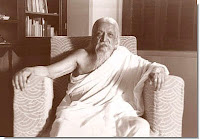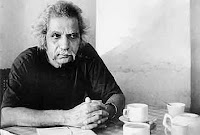ELTWeekly Vol. 4 Issue#32 | August 6, 2012 | ISSN 0975-3036
This articles is written by Dr.Sachin Ketkar, Dept. of English, The Maharaja Sayajirao University of Baroda, Vadodara, G
We would like to thank Dr. Ketkar for granting permission to reprint this article for the readers of ELTWeekly.
There is a sudden rise in the number of PhD aspirants in these parts of the country. This may be because many universities in Gujarat and elsewhere offering the PhD Entrance Test (TET) in a quick succession. It may also be due to the UGC resolution that those who have completed their PhD following 2009 norms will be exempt from National Eligibility Test (NET) for lecturership, and probably also due to the new Academic Performance Index being introduced by the UGC in the sixth pay commission. However, not many are clear about what research in literary studies means, or why they are doing it in the first place.These dreadful questions may haunt them later in many forms if they jump on the bandwagon hastily.
This lack of clarity shows up in the stock responses to the question ‘why do you want to do Ph.D/doctoral research?’. The typical responses range from ‘ I want to develop myself further/ increase my knowledge’ or ‘ For intellectual pleasure’ to ‘ for a better job/salary/ status’. Though all these reasons are valid, it should be kept in mind that doing doctoral research is not the only way of fulfilling on these objectives. One could read widely, or clear the N.E.T., or get rich by starting one’s own business or by becoming a religious preacher, for instance. So why should one do doctoral or Mphil research at all? An answer to this question lies in knowing what doctoral or Mphil research is.
So what is doctoral or M.Phil research after all? Well, the obvious answer is that it is a program that trains you to become a systematic and disciplined researcher: it builds the foundation to the later research actitivity. Hence the real reason why should do Mphil or PhD is that you want to be researcher for the rest of your life, and the doctoral research program is the opportunity to equip and train yourself to become a serious researcher. It is a net practice and coaching program if you want to graduate from gully-cricket to international cricket. (Click here to read my other entries on research).
Research is commonly perceived as as purposive and systematic search for information and knowledge about something. Even the hunt for a date on the internet can be an example of research. However, research as we understand it academically is not primarily a search for answers to the personal questions. The whole idea of ‘objectivity’ in research does not imply that you are ‘ impersonal’ but what you are investigating and exploring has value beyond one’s personal quest for answers. Hunting for a date for yourself may also be research, but gathering information about pretty girls in your surrounding locality has relevance to more than one person and hence of greater social value.
So what is research, especially in literary studies, after all? In very ordinary language, research is a contribution to a particular domain of knowledge. By contribution, I mean addition to what we already know about the particular area. If I want to write one more thesis on ‘Postcolonialism in Amitav Ghosh’ ‘ Spirituality in Sri Aurobindo’ or ‘ Feminism in Shashi Deshpande’, I am not really adding to what scholars already know about these things. Research which provides knowledge which is obvious and already known is of little use to anyone.Reinventing the wheel may earn you a degree (very often in our universities we keep doing that) but that would not prove that you have done research.
By ‘particular domain’ I imply an area of research which is sufficiently specific and sufficiently narrow enough to be ‘ do-able’ within time and space of the thesis. Yet it should not be so narrow that the generalization we make would be nullified. ‘Postcolonial consciousness in Indian Writing in English’ would be too vast an area, and probably an analysis of a single novel by Salman Rushdie would be too narrow for making valuable generalizations about either Salman Rushdie or Indian writing in English.
Learning how to develop an argument is a crucial research skill-after all, the term ‘thesis’ means ‘a position.’ It is very important to understand the logical movements from specific and particular to generalized knowledge or theoretical knowledge ( inductive approach) and from generalization ( theoretical) to particular and specific ( deductive approach) in your exploration. You may start with a general understanding of the area and form a hypothesis which can be verified by analysis of specific texts or patterns or else you may start with particular observations about the patterns in the texts/ authors and then generalize and theorize them. Which approach is suitable for your purpose depends on your research question. If you want to examine ‘ Representations of Masculinity in the post-independence Indian novels in English’, you may start with the hypothesis that the representation of masculinity in the post-Independence Indian novels in English differs significantly from the representation of masculinity in the pre-Independence Indian novels in English, and that this shift occurs because of historical reasons. The logical movement of your argument would largely be deductive. ‘Archetypal Patterns in the Post-nineties Indian Poetry in English by women’ may start with an analysis of patterns in various Indian women poets in English writing in the nineties and then may move on to theoretical generalizations in an inductive fashion. Though usually it is a combination of both logical processes, one process is often primary.
The key to successful research lies in asking a valuable research question, an important question which is not often asked or not sufficently explored regarding the area of research. ‘The Elements of Grotesque in Sri Aurobindo’s Poetry’ or ‘ Folk motifs in Shashi Deshpande Short Fiction’ would be yield knowledge that is not very common and hence,interesting. ‘Surrealism in Arun Kolatkar’s poetry’ is an obvious observation, the research, however, begins when you want to understand why surrealism is found in his works, how does he deploy surrealistic devices, what does it do in the particular cultural context and what is its significance.
One of the most important questions of writing a research paper or thesis is the question of language of research. What is the appropriate ‘register’ for the language of research? What is the place of technical and theoretical vocabulary in the language of research? What about the jargon? The answer becomes clear when we understand that a research thesis is a serious dialogue or a conversation between two experts and scholars, and not between two M.A. students or even between a postgraduate student and the examiner, or even worse, between a teacher and a student. In your research paper or thesis, an expert speaks with an expert. Hence the language has to be technical ( remember two lawyers discussing law in the court or doctors discussing a disease or treatment?). This does not mean that you should use the technical terminology to show-off your learning ( pedantary) or obscure you own ignorance (cheating). Bad research today often suffers either from naivette ( as if a teacher talking to her student) or from the other extremity- pedantary, obscurantism and masking of ignorance ( brahminism).
When we understand that in research writing, an expert is talking to another expert, we can also cut down and structure our thesis in a better way. What is already well-known is usually not elaborately discussed, and is often reduced to minimum. So the things like biographical details, details of various works or well known facts and information occupies minimum space.
This brings us to yet another important and problematic question: what is the place of ‘theory’ in the period which is ‘post-theory’. Theory as we know is not vaseline or Tiger Balm to be ‘ applied’. Theoretical approaches ( Psychoanalytical, Marxist, structuralist, postcolonialist, Feminist,subaltern, LGBTs, poststructuralists etc etc) are perspectives, points of views, ways of looking and conceiving the object of our research. Today, we know what ‘IS’ our object of research ( what we once knew as ‘literature’ in our good very old days) has become more and more problematic and contested, and what is literature often depends on how we look at it. ‘What’ we see is very often a function of ‘How’ we see it, and so it is not as simple as there is preexisting ‘literature’ “ out there” and we use theoretical frameworks as spects to see it. You cannot imagine literature existing independently of a conceptual frame, and when you claim that you are not using any theory, it is very likely that some theory already is using you. Today, if you are honest, you have to be self-conscious of which the theory is using you, and you are using which theory, and you should have an awareness of advantages and limitations of your own conceptual frames ( those which are using you and those you are using). Literary research today has to be autocritical.
Besides, I have also often heard complaints that too much criticism and theory is spoil sport and it takes away ‘fun’ from reading literature. You don’t need to ‘study’ literature in order to have fun and enjoyment. You may enjoy watching flowers, but you don’t become botanist in order to enjoy flowers. You may get pleasure and enjoy studying plants, but you need not produce a body of knowledge about plants to enjoy viewing them or tending them. You need not be an expert in evolutionary biology to enjoy playing with your cat. The same thing applies to the study of literature. When you ‘study’literature, you are engaging with a vast body of knowledge about literature. That it provides a distinctive type of intellectual pleasure may be a bonus, but it is more likely to produce lot of pain in some unmentionable parts of your body.You HAVE to go beyond your personal likes and tastes , and you HAVE to read plenty of difficult theoretical writings, if you want to be a serious researcher. Reading Lacan, Judith Butler or Spivak is not an enjoyable pastime, but then research in literature is not a pastime.
I want to end this longish entry by recommending two very useful books for the beginners here: i) Research Methods for English Studies by Gabrielle by Gabriele Griffin and ii) Literary Theory: A Very Short Introduction by Jonathan Culler. Critical comments, suggestions and feedback on my blog entries are welcomed.








1 comment